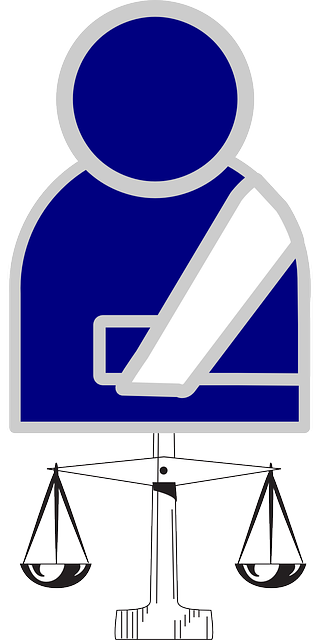Choosing case management software for your law firm requires understanding specific needs, including practice areas, team size, and existing processes. Prioritize user-friendliness, customization, and seamless integration with current law office equipment to streamline workflows and enhance efficiency. Select software that offers robust case tracking, advanced search, automation, and reporting capabilities, while minimizing manual data entry errors. Cost-effective law office equipment with secure document storage, automated backups, and compliance tools maximizes ROI and boosts productivity, ensuring your firm remains competitive in a digital era.
Selecting the right case management software is a strategic move for any law firm, enhancing efficiency and client service. This guide navigates the process of choosing the ideal tool tailored to your unique legal practice. We explore essential factors, from comprehending your firm’s specific workflows and integrating with existing law office equipment, to evaluating cost-effectiveness and return on investment (ROI). By the end, you’ll be equipped to make an informed decision that revolutionizes your legal operations.
- Understanding Your Law Office's Unique Needs and Workflows
- Key Features and Functions of Case Management Software
- Integration with Existing Law Office Equipment and Systems
- Cost-Effectiveness and Return on Investment (ROI) Considerations
Understanding Your Law Office's Unique Needs and Workflows
Every law office is unique, with its own set of requirements and workflows dictated by the nature of its practice areas and client base. To select the right case management software, it’s crucial to start by thoroughly understanding your firm’s specific needs. Consider factors like the types of cases handled, the size of your team, and the current processes in place. For instance, a small criminal defense firm may prioritize easy access to case files and communication tools, while a large corporate law office might require advanced e-discovery capabilities and robust document management features.
Assessing your law office’s equipment and infrastructure is also vital. The software should seamlessly integrate with existing systems like accounting software or time tracking tools. Cloud-based solutions offer flexibility and accessibility from anywhere, but ensure the platform has robust security measures in place to protect sensitive client data. Additionally, consider user-friendliness and customization options to tailor the software to your office’s unique workflows, ensuring it becomes an effective asset rather than a cumbersome addition.
Key Features and Functions of Case Management Software
Case management software is a powerful tool for any law office, offering a centralized platform to streamline workflows and enhance efficiency. Key features include robust case tracking capabilities, allowing lawyers to manage client details, legal documents, deadlines, and court dates from one place. This software revolutionizes the traditional paper-based systems, transforming them into digital, accessible repositories that facilitate collaboration within the firm.
Additionally, these platforms provide advanced search functions, ensuring quick access to past cases, relevant legal research, and important case history. Automation features such as reminders and notifications for upcoming deadlines or court appearances can help law offices stay organized and on top of their caseload. The ability to generate reports and analytics offers valuable insights into practice areas, client types, and case outcomes, enabling the firm to make informed strategic decisions. Effective case management software is an indispensable law office equipment in today’s legal landscape.
Integration with Existing Law Office Equipment and Systems
When selecting case management software, it’s crucial to consider how seamlessly it integrates with your existing law office equipment and systems. This includes everything from your document management system to time tracking software and accounting tools. The ideal solution should offer smooth data synchronization, ensuring that information flows effortlessly between different platforms. This integration not only streamlines workflows but also minimizes the risk of errors caused by manual data entry.
Moreover, looking for a case management software that supports open APIs (Application Programming Interfaces) can greatly enhance your firm’s flexibility and future-proofing. These APIs enable you to connect specialized tools tailored to specific legal needs, such as e-discovery or contract management software, directly within your primary case management system. This interconnected ecosystem optimizes operations, enhances collaboration among legal professionals, and ultimately improves client service.
Cost-Effectiveness and Return on Investment (ROI) Considerations
When selecting case management software, cost-effectiveness is a primary concern for any law office. This isn’t just about the initial purchase price but also the ongoing costs associated with maintenance, updates, and training. It’s essential to consider the return on investment (ROI) these solutions offer. Efficient case management tools can streamline workflows, reduce administrative burdens, and enhance productivity among legal professionals. By minimizing errors, accelerating case processing, and improving client communication, these software solutions can significantly boost the overall efficiency of a law office, translating into cost savings and increased profitability over time.
Moreover, investing in top-tier case management software can prevent future expenses by mitigating potential risks. Features like secure document storage, automated data backup, and compliance tools can help avoid costly legal pitfalls and data breaches. As such, the right software not only cuts operational costs but also strengthens the law office’s position, ensuring it stays competitive and relevant in a digital age.
When selecting case management software, it’s crucial to align your choice with your law office’s specific workflows and unique needs. By evaluating key features, ensuring seamless integration with existing law office equipment, and considering cost-effectiveness, you can make an informed decision that maximizes efficiency, enhances productivity, and delivers a solid return on investment (ROI). Remember, the right software isn’t just a tool—it’s a strategic asset that supports your firm’s growth and success.
